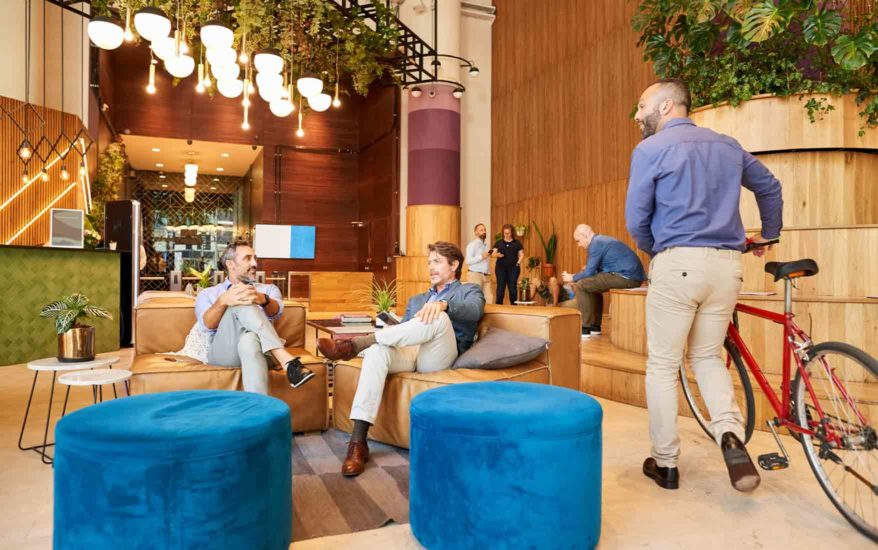
Everyone’s experiences of flexible work will be different, depending on their job role, their industry, the strategies of their employer and even their individual work/life balance. But that means that every person has their own stories to share, and their own insights that can help guide better outcomes for all in the future of work.
To uncover some of those stories, we’ve recorded a series of podcasts with the theme ‘A Week in My Flexible Work Life’. In each one, a senior business leader shares their flexible work story, including how successful it’s been for them, how their employer has handled the shift, and how they’ve been able to stay productive and foster collaboration throughout.
All six recordings are available now on Spotify and iOS, and here’s a taste of what you can discover:
1. Trust, Flexibility & Optimism
With guest, Shalene Gupta, corporate adviser and researcher
Previously a financial specialist in the U.S. Department of the Treasury, Shalene was used to working from home pre-pandemic. She observed first-hand how many of her co-workers adjusted – some more easily than others. She also found that breaking out of the nine-to-five routine helped her feel more productive, and how flexibility has empowered her to explore other pursuits where she can actively make a contribution to society.
Listen to the full episode with Shalene on Spotify or iOS.
2. Dynamic, A Bit Uncomfortable & Remote
With guest, Gerrie Hawes, corporate behavioral psychologist and leadership coach
Gerrie has been able to explore the work models put in place by some of the biggest and most well-known organizations in the world, and help them formulate better strategies for the future of work. She talks about how companies across the globe are being forced into a rethink, spurred on by changing employee expectations and trends like the Great Resignation. She also explores how being able to work flexibly, and to incorporate rest and relaxation into the working days, can be hugely beneficial for employees’ mental well-being.
Listen to the full episode with Gerrie on Spotify or iOS.
3. Personal, Vibrant & Everchanging
As a passionate advocate for helping young people, Ndidi explains how being able to enjoy work and feel motivated to be productive is particularly important. She highlights how remote working isn’t necessarily helpful for younger employees, who may be missing out on learning more about their jobs organically from conversations within the office. She also explores the mismatch between vacancies in the job market, and the skill sets of the population as a whole.
Listen to the full episode with Ndidi on Spotify or iOS.
4. Trust, Empowerment, Dialogue
With guest, Eero Vaara, professor of organizations and impact
Having led the future of work program for Aalto University in Finland where he works, Eero is ideally placed to offer some expertise into how the world of work is changing. He explains how flexible working, already present in some sectors pre-pandemic, has been accelerated over the past couple of years. He goes on to discuss why Finland stands out as a global leader in flexible work and employee-friendly working models, and what drives their way of life.
Listen to the full episode with Eero on Spotify or iOS.
5. Consensual, Flexible & Productive
With guest, Paul Evans, research officer for BECTU
Representing the broadcasting, entertainments, communication and theater union in the UK, Paul talks about how the freelance-heavy nature of his industry meant employees were hit particularly hard by the pandemic. He goes on to explain that employers are coming to realize that hiring freelancers is effectively buying in productivity, and how this realization is breaking down barriers around when and where people work.
Listen to the full episode with Paul on Spotify or iOS.
6. Time, Trust & Capacity
With guest, Heather McGowan, future of work strategist and thought leader
Heather goes into detail on how her varied experience throughout her career has helped her spot trends in how employees and employers alike view different working models. She explains why it’s so important for employers to understand how people are feeling and their overall well-being after the difficulties of the pandemic. She also puts forward a view that human capital is replacing physical capital as the most important asset businesses can have.



